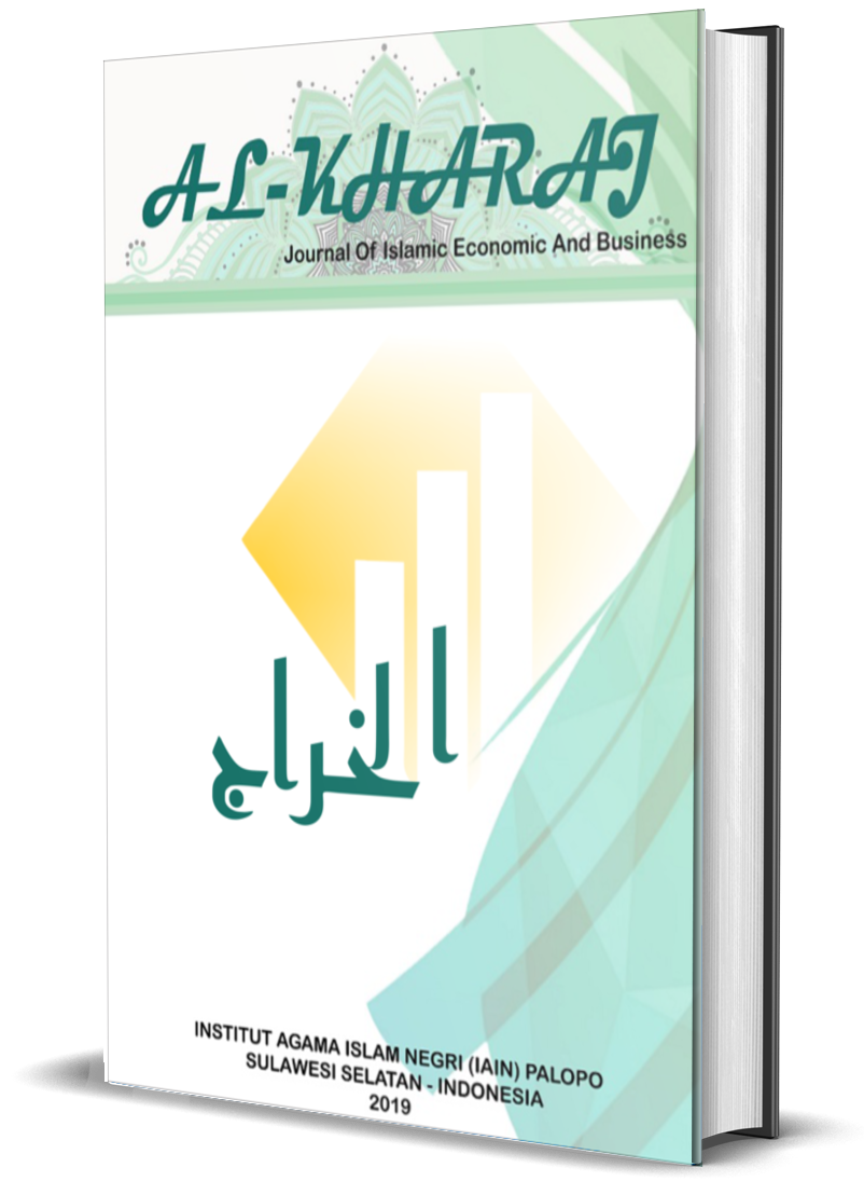The Application of Environmental Management Accounting in Developing Sustainable Business Plans among Entrepreneurial Students of Politeknik Negeri Medan
DOI:
https://doi.org/10.24256/kharaj.v7i4.8263Keywords:
Environmental Management Accounting, Sustainable Business Plan, Entrepreneurship, Vocational Competence, Case Study.Abstract
This study aims to (1) identify the level of understanding of entrepreneurial students at Politeknik Negeri Medan regarding the principles of Environmental Management Accounting (EMA), (2) analyze the extent to which their business plans substantively reflect environmental aspects, and (3) formulate a conceptual model for implementing EMA as a foundation for sustainable entrepreneurship development.
Method: This research adopts a descriptive qualitative approach through a case study design. Primary data were obtained from in-depth interviews with relevant participants and content analysis of the business plans they developed. The analysis focuses on exploring students’ perceptions, the challenges they encounter, and the environmental cost management components embedded in their planning.
Results: The findings reveal a contradiction between the students’ strong commitment to ethics and sustainability and their limited technical competence in applying EMA to business planning contexts. Environmental aspects in their business documents are largely expressed qualitatively (such as environmentally friendly pledges) and have not yet integrated detailed calculations of environmental costs and eco-efficiency potential. This condition constrains the development of accountable business planning.
Implications: These results highlight the critical need to revise the vocational education curriculum. Institutions should introduce practical EMA modules emphasizing environmental cost measurement so that Polmed graduates can design business plans that are not only ethical but also strategic and measurable from an accounting perspective.
References
Adelia, B. D., & Sisdianto, E. (2025). Integrasi Akuntansi Lingkungan dalam Perencanaan Bisnis Berkelanjutan: Pendekatan Strategis untuk Menghadapi Tantangan Global. Jurnal Ilmiah Ekonomi Bisnis dan Akuntansi, 2(1), 635–643. https://doi.org/10.61722/jemba.v2i1.672
Apriani, A., Nurwani, & Juliati, Y. S. (2023). Analisis Penerapan Akuntansi Manajemen Lingkungan Dalam Pengungkapan Biaya Lingkungan Berdasarkan Perspektif Islam. Jurnal Ilmiah Ekonomi Islam, 9(02), 2374–2384. https://doi.org/10.29040/jiei.v9i2.9510
Azis, I., Widiawati, A., & Nur, A. A. (2020). Analisis penerapan Environmental Management Accounting (EMA) dalam meningkatkan eko-efisiensi usaha (Studi kasus pada Rumah Sakit IbnuSina YW-UMI Kota Makassar). AkMen Jurnal Ilmiah, 17(2), 242–253.
Burhany, D. I., Purnomo, M., Sari, E. P., Putri, I. E., Rini, A. A. M., Syahrir, S., Taufik, T., Salsabila, N., & Aulia, N. (2024). Integrasi Akuntansi Lingkungan ke Dalam Kurikulum Pendidikan Tinggi Akuntansi Menurut Perspektif Akuntan Pendidik. Portofolio Jurnal Ekonomi Bisnis Manajemen dan Akuntansi, 2(1), 111–123.
Dunakhir, S., Hanisyahputra, F. D., Dahlan, L., & Zaimar, F. R. (2025). Environmental Literacy and Green Accounting in MSMES. Journal of Social Science and Business Studies, 3(3), 562–570. https://doi.org/10.61487/jssbs.v3i3.181
Ibrahim, M., Dalimunthe, R., & Wulandari, P. (2025). Indonesian migrant workers in the framework of legal protection and business existence. Priviet Social Sciences Journal, 5(7), 1–10. https://doi.org/10.55942/pssj.v5i7.376
Julita, Desmiyawati, R., Natariasari, R., Iznillah, M. L., Nabila, K., & Izzara, A. (2025). Entrepreneurship for Sustainability: Dampak Education Sustainability dan Awareness of Green Accounting. Jurnal Akuntansi dan Ekonomika, 15(1), 156–167. https://doi.org/10.37859/jae.v15i1.8233
Manap, A., Ginting, R. U. B., Suyadi, S., Sasmiyati, R. Y., & Edy, N. (2024). Implementation Of Environmental Management Accounting System For Business Sustainability In Manufacturing Companies In Bekasi Regency. INNOVATIVE: Journal Of Social Science Research, 4(5), 5354–5369. https://doi.org/10.31004/innovative.v4i5.15631
Mayako, P. A., & Wulandari, P. (2025). Higher Education Institution Marketing: Factors Influencing Students’ Decision To Choose Politeknik Negeri Medan (POLMED). IKRAITH-EKONOMIKA, 8(1), 643–649. https://doi.org/10.37817/IKRAITH-EKONOMIKA
Ndruru, D. S., Sagala, L. G., & Fransiscus, R. (2025). Pengaruh Inovasi dan Kualitas Pelayanan Terhadap Kepuasan Konsumen Pada Restoran Ayam Penyet Jakarta (APJ) Cabang Ringroad Medan. IKRAITH-EKONOMIKA, 8(3), 72–87. https://doi.org/10.37817/ikraith-ekonomika.v8i3
Purwana, D., Effendi, M. S., Adha, M. A., Musyaffi, A. M., & Suparno, S. (2025). Entrepreneurship Education as a Catalyst for Sustainability: Linking Innovation, Intention, and Business Models. International Review of Management and Marketing, 15(3), 119–129. . https://doi.org/10.32479/irmm.18015
Wahyuni, E. D., Leniwati, D., & Salsabila, N. (2024). Akuntansi Manajemen Lingkungan, Inovasi Hijau, Dan Dampaknya Terhadap Kinerja Manajerial. Jurnal Reviu Akuntansi dan Keuangan, 14(2), 429–441. https://doi.org/10.22219/jrak.v14i2.32141
Wulandari, P., Mawaddah, & Purba, A. R. H. K. (2025). Post-acquisition TikTok and Tokopedia: Optimization marketing media to encourage entrepreneurship on Sumatra Island. Priviet Social Sciences Journal, 5(6), 1–13. https://doi.org/10.55942/pssj.v5i6.383
Wulandari, P., Mayako, P. A., & Cahyaningrum, M. (2025). Challenges, Opportunities, and the Future of the Blue Economy in Indonesia. Jurnal Ekonomi Manajemen Bisnis Dan Akuntansi, 2(1), 78–90. https://doi.org/10.70895/jemba.v2i1.18
Yunita, H., Sagala, L. G., & Hasibuan, S. J. (2025). Pengaruh Kualitas Pelayanan dan Kepemimpinan Terhadap Kepuasan Masyarakat pada Kantor Kelurahan Labuhan Bilik, Kecamatan Panai Tengah. IKRAITH-EKONOMIKA, 8(3), 88–101. https://doi.org/10.37817/ikraith-ekonomika.v8i3
Downloads
Published
How to Cite
Issue
Section
Citation Check
License
Copyright (c) 2025 Maya Syahlina Maya, M. Rikwan Effendi Salam Manik, Indri Dithisari, Lisa Medina

This work is licensed under a Creative Commons Attribution-ShareAlike 4.0 International License.
Authors retain copyright and grant the journal right of first publication with the work simultaneously licensed under a Creative Commons Attribution-ShareAlike 4.0 International License. In line with the license, authors are allowed to share and adapt the material. In addition, the material must be given appropriate credit, provided with a link to the license, and indicated if changes were made. If authors remix, transform or build upon the material, authors must distribute their contributions under the same license as the original.









